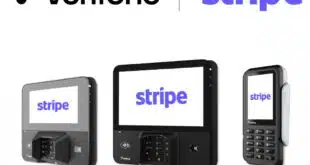Competition from faster payments pushed the automated clearing house to introduce same-day processing, but now the ACH may well turn the tables, says Sarah Grotta.
It has been a year since same-day ACH (SDA) credits and debits have been available in the United States. Here’s a quick refresher of SDA volumes reported thus far by NACHA, the governing body for the automated clearing house:
– 56.8 million credit transaction and $72.5 billion dollars processed in 2017;
– 18 million debit transactions and $14.5 billion dollars processed in 2017;
– 75.1 million total transactions and over $87 billion in dollar volume in 2017;
– 41 million transactions through the second quarter of 2018, representing over 200% growth compared to the prior-year period;
– Primary SDA use cases include consumer bill pay, payroll, and business-to-business payments.
That’s not a bad start for a 1-year-old. In its favor, SDA has a built-in network, developed over decades through integration with over 12,000 U.S. financial institutions, that reaches nearly every U.S. transaction account. Hundreds of thousands of businesses can send SDA, and received SDA transactions can be fully processed, reconciled, and recognized by their account systems. This is the kind of ubiquity that newer faster and real-time payment options can only dream of.
The comparison of SDA to real-time payments is purposeful. Although SDA doesn’t operate in real time and never will, it is being influenced by the development of new payment rails, and in turn is leaving its mark on the development of faster payments in the United States.
Consider that NACHA has just recently received approval from its membership that will extend the processing day by two hours, and to add another processing window for SDA, which will allow a faster option for more ACH transactions. Weekend and holiday processing is being considered too. Five years ago, processing on what was then considered non-business days was unthinkable, but the emergence of other faster-payments services is creating the need for ACH to increase its speed and availability.
‘New Tricks’
Further progress has been underway for ACH modernization through the development of standardized application programming interfaces (APIs) for some ACH capabilities, as well as support for ISO 20022 messaging. These new tricks from an old payment type like ACH will preserve its viability as a payment option as new real-time, near-real-time, or just plain faster payments begin to emerge.
SDA is already seeing competition for payment transactions from Mastercard Send and Visa Direct credit-push payments, which are attracting volume for person-to-person (P2P) transactions and business-to-consumer (B2C) disbursements delivered within minutes and sometimes seconds. Early Warning’s Zelle platform will process well over $100 billion in P2P transactions this year, according to predictions by Mercator Advisory Group, and is moving aggressively into B2C disbursements.
What’s more, after The Clearing House’s launch last November of its real-time solution, followed by deafening silence, it was recently announced that integration with The Clearing House’s largest owner banks has been in development and they will have the capability to reach 50% of all U.S. transaction accounts by year-end 2018.
Without the competitive pressure of the real-time payments initiatives, NACHA would not have moved forward with SDA or received membership approval for its enhancement. There certainly wouldn’t have been a reason to embrace ISO 20022.
Competitive pressures go both ways, however. In addition to the near-ubiquitous reach that ACH enjoys and other networks will seek to copy, NACHA has also increased the allowable per-transaction amount from $25,000 to $100,000, which would make SDA more attractive for business-to-business payment activity. Other faster-payment types will have to quickly increase their limits, too, particularly if they want to participate in B2B channels, as soon as they feel comfortable that fraud can be controlled successfully.
Pricing Issues
Another way that SDA will have a defining impact on the development of faster payments lies in transaction pricing. SDA currently carries a fee of 5.2 cents more than the cost of a standard or legacy ACH transaction. Financial institutions can mark up this fee to their customers for the premium service provided. At a premium price of pennies per transaction for a payment that posts and settles in the same day for both credit and debit transactions (and might have weekend and holiday processing capabilities), SDA is value-priced. This positions ACH as the price-comparison point for all other domestic payment types being considered, particularly where instant transaction delivery is not the primary payment objective.
How important is speed? The answer appears to depend on the specific use case. According to a survey of businesses conducted by PNC Bank, greater value is seen in the 24x7x365 access that modern, faster payments offer than in the actual speed. Interestingly, at this early stage of development, over half of the respondents in that survey said they had no plans at present to adopt a real-time payments solution.
What we are witnessing now in the payments industry is the competitive one-upmanship of introducing new faster-payments networks, platforms, and products through a private-industry approach, with notable assistance from the Federal Reserve, but not a regulated mandate.
Venerable old ACH continues to learn new tricks, including the successful rollout of same-day transactions, to retain its relevance as more-modern payments emerge. The new payment types offering more efficient technology and greater flexibility are having to look over their shoulders at incumbent payments. In this way, ACH and SDA will drive the ways in which new faster and real-time payments evolve.
—Sarah Grotta is director for the debit and alternative products advisory service at Mercator Advisory Group, Maynard, Mass.




